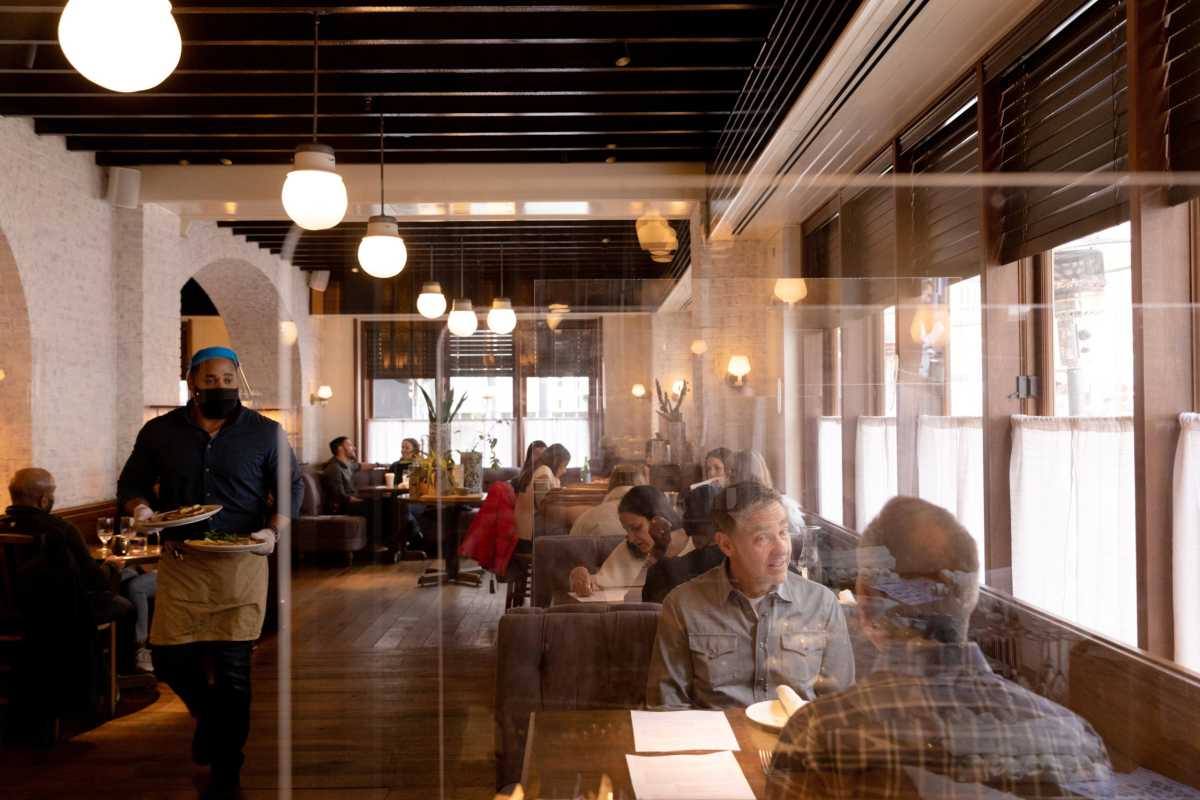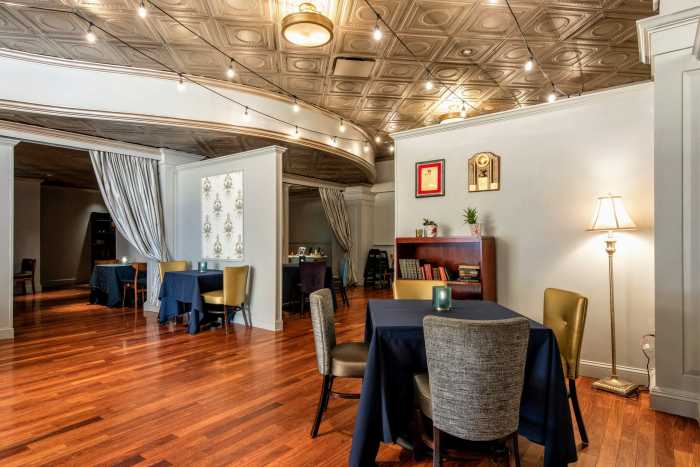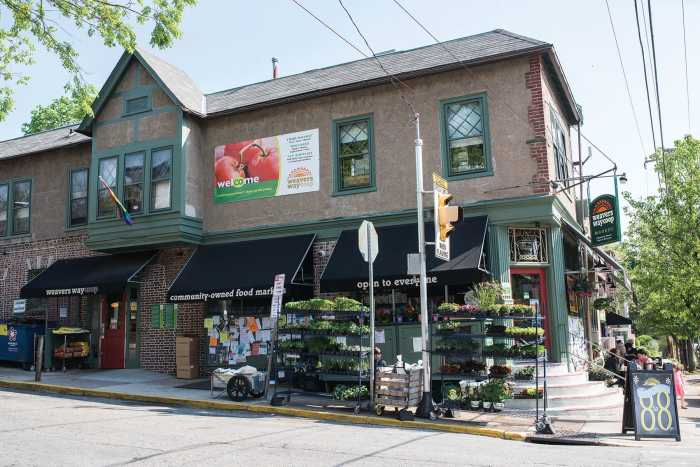The road to change has been a long and arduous one for the restaurant industry—and there is still a lot of work to be done—but celebrating victories is something that should certainly be celebrated.
Recently, the $1.9 trillion American Rescue Plan was passed, and this advancement will offer restaurants $28.6 billion in dedicated relief funds. This essential piece of relief is geared towards an industry that was hurt astronomically—approximately around 11 million jobs were on the line during the height of the pandemic.

“We saw the Restaurants Act pass as part of the Heroes Act which the Senate in the last session did not conduct a vote on. We were kind of in limbo,” says chef Tyler Akin.
Metro has talked to the restauranteur who owns venues in both Philly such as Stock and Delaware at the Hotel Du Pont about the continuous fight to save Philly restaurants. Now, Akin is discussing one of those moments to celebrate on a long road to recovery.”There was a transition between congressional sessions [to] re-introduce the bill as a stand-alone with the same original cosponsors. A lot of our cosponsors in the last session put their name on it once again, so we felt pretty good and there were a lot of indications that the will was there to provide support to restaurants. Amazingly, that framework that was the Restaurant’s Act was copied almost exactly into the American Recovery Plan that passed.”
Early in the pandemic, Akin sat on the board of the Pennsylvania Restaurant & Lodging Association (PRLA), which represents the interests of over 1,600 restaurants in the state, and the Independent Restaurant Coalition (IRC), where he works with national leaders in the culinary community as well as DC lobbyists. It’s with the IRC that Akin and those championing for the industry made important advancements.
“I think ultimately, we had brought bipartisan support of the Restaurant Act,” explains Akin. “We had co-sponsors on both sides of the aisle, the bill had been introduced by Democrats and Republicans respectively in each chamber. So, we knew that there was a stomach for this program. The issue was really that transition between sessions and not knowing immediately what the Biden administration and the new Democratic senate’s priorities were going to be and how they were going to approach that first big spend.”
The restauranteur goes on to explain it was a question of: Was it going to be a reconciliation strategy that they ended up using or was it going to be an omnibus spending bill that would have required several more republicans to buy into the whole slate of spending? “So there were a lot of unknowns and forces obviously much larger than restaurants which were shaping this outcome…We were doing everything we could and banging down doors and communicating with legislators to make sure that when that big bill took shape, we were involved. Thankfully we were,” Akin finishes.
At least 110,000 restaurants and bars closed, and the industry lost over $219 billion in sales since the start of the pandemic. This dedicated relief program helps protect the 11 million workers these businesses employ, and the 5 million more they support through the supply chain. Benefits span from payroll, rent and utilities, managing outdoor seating construction, food, operational expenses and more.
“We’re really proud of the way the legislation was implemented. A lot of the key terms that we had proposed almost a year ago survived the enactment,” says Akin. Those terms include prioritization for women, minorities, veterans and economically disadvantaged groups. Overall, $5 billion is reserved for restaurants that grossed under $500,000 in 2019, another $4 billion is reserved for restaurants that grossed between $500,000 and $1.5 million in 2019.
“There was a real view to both prioritizing marginalized communities that in a lot of instances had not a lot of success with PPP, but also, maintaining that spirit of helping the truly small restaurants that I think have hurt as less or more than anybody else.”
How can restaurants apply? Resources are available at saverestaurants.com.
“It’s imperative [to apply] as soon as possible. If a restaurant hasn’t applied yet, they certainly should,” explains Akin. “What we do know is that the program is likely oversubscribed at this point, so we are pivoting back into legislative outreach and building consensus to replenish the fund because what we learned from the SBA [Small Business Association] was that in those first 2 days there were [over] 186,000 applications filed…And more than half of those were in that prioritized category.
“We know that entities in all 50 states and five U.S. territories applied, and we know that of those applications, [a large amount] of them were from restaurants that were under that $500,000 mark in 2019,” he continues. “So, it worked. The issue now is making sure that because it is apart from that first prioritized 21 days for those certain groups, it’s a first-come-first-serve basis on how quickly one applied to the program.”
Last time Metro spoke with Akin, he implored the public to do their part and try and call their local politicians to help make this happen. For this specific accomplishment, the IRC garnered support from the SouthEastern PA Congressional delegation, Congressman Brian Fitzpatrick, Philadelphia Zone and Senator Chris Coons so there were many people locally and regionally that helped to get them where they are now.
“It’s going to bring a sense and reality of stability for a lot of folks, a lot of people went deeply into debt through the last 14 months to keep the doors open and continuing to service their operations. I think it’s a boom to landlords who aren’t going to have mass commercial vacancies, the supply chain I think is going to return to a healthier state where the kind of credit restaurants had relied on over the years might be restored—there’s a lot of outstanding debt.
“Also, I think it gives restaurants the opportunity to explore the kind of benefits that we all have always hoped to provide our employees, but for lack of resources has not always been possible,” Akin adds. “So, its a lot and it’s a whole ecosystem that surrounds restaurants and I think it also in addition to potentially making those benefits more widespread, it allows for restaurants to afford to bring employees back, which is still a challenge for a lot of folks. We want to see this program succeed. We want to see everybody who is entitled to those funds receive them in a timely manner. So, that is truly our main focus right now.”
To find out more, visit saverestaurants.com



























